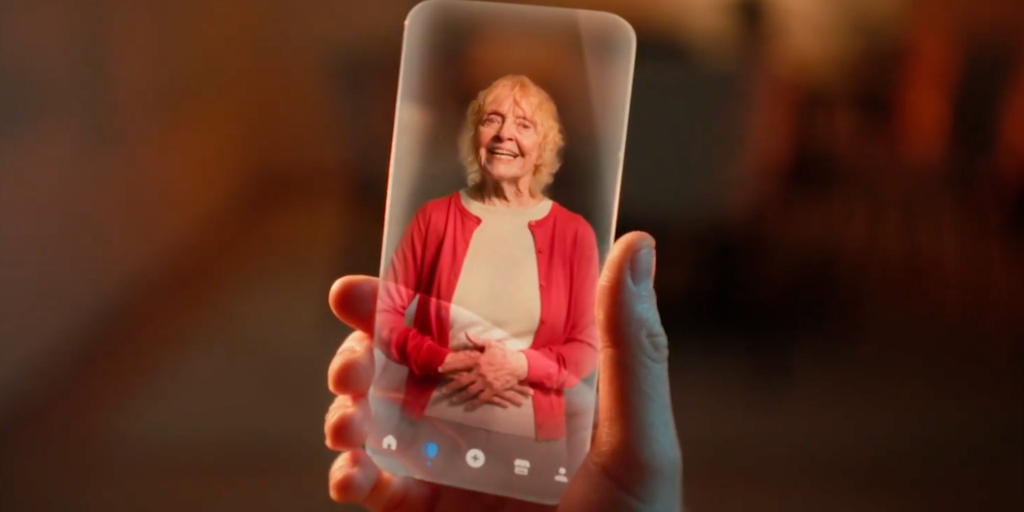
In short
- 2Wai’s app generates conversational video avatars from a few minutes of recordings, drawing comparisons to “Black Mirror.”
- Critics warn the technology exploits vulnerable mourners and operates in a legal gray zone with weak post-mortem privacy protections.
- The launch intensifies research into a grief technology industry grappling with consent, data ownership and the risks of AI-generated ‘digital ghosts’.
An artificial intelligence startup co-founded by a former Disney Channel actor has launched a mobile app that lets users create interactive digital replicas of deceased loved ones, prompting swift online condemnation and renewed scrutiny of the burgeoning “grief tech” sector.
2Wai, founded by Calum Worthy – known for his portrayal of Dez in the Disney series “Austin & Ally” from 2011 to 2016 – and producer Russell Geyser, released its iOS beta on November 11. The app’s ‘HoloAvatar’ feature generates conversational video avatars from just three minutes of uploaded footage, audio and text input, enabling real-time chats in more than 40 languages.
Although marketed as a legacy preservation tool, the ability to recreate the deceased has dominated headlines, prompting comparisons to the dystopian 2013 Black mirror episode “Be Right Back,” in which a grieving widow animates the digital spirit of her deceased husband.
The promotional video, which Worthy posted to his X account with 1.2 million followers, has been viewed 22 million times and generated more than 5,800 comments. It shows a pregnant woman video-calling an AI reconstruction of her dead mother for advice, then fast-forwarding to the avatar reading bedtime stories to her newborn — and later advising her adult grandson, played by Worthy.
“What if the loved ones we lost could be part of our future?” the excerpt asks. “With 2Wai, three minutes can last forever.” Worthy continued: “At 2wai we are building a living archive of humanity, one story at a time.”
Mechanics and origins
HoloAvatars run on 2Wai’s proprietary FedBrain technology, which processes on-device interactions to ensure privacy and limit responses to user-approved data, reducing AI “hallucinations.” The app also supports live users who create avatars for fan engagement or coaching – Worthy’s own digital twin shares behind-the-scenes Disney anecdotes.
It’s currently free in beta, but will move to a tiered subscription model, with pricing undisclosed but likely $10-$20 per month based on comparable AI services.
The venture traces its roots to the 2023 SAG-AFTRA strikes, in which artists protested unauthorized AI likenesses.
“Having worked as an actor, writer and producer for the past twenty years, I have experienced firsthand how challenging it is to build meaningful relationships with fans around the world,” Worthy said at the launch in June. “Language barriers, time zones and budgets limit the ability to truly connect.”
2Wai raised $5 million in pre-seed funding from undisclosed investors in June, with the company saying it is working with the likes of British Telecom and IBM.
Ethical and privacy concerns
The public response was overwhelmingly negative, with
One viral response called it “one of the most evil, psychotic things I’ve ever seen,” arguing that it “makes people psychotic” by simulating loss rather than processing it. Another labeled it “beyond despicable” and emphasized that “videos do that” for archiving, not AI guesswork.
“Are you sure you want to cancel your subscription and never talk to your dead parents again?”
You’re a psychopath.
Get help.
Stop building products before you really hurt someone.
— Alex Napier Holland 🦍 (@NapierHolland) November 13, 2025
Legal experts point out that death bots are in a legal and ethical gray zone because they can be built without the express consent of the deceased, can expose deep personal data of both the deceased and the mourner, and create ambiguities around the ownership of the digital avatar and its associated data.
Privacy laws typically protect living people and provide few or no post-mortem safeguards, leaving relatives vulnerable to commercial exploitation of grief through subscription models and unregulated access to interviews, voice recordings and other sensitive material. Furthermore, the ability of such bots to communicate, learn, and deviate from captured data poses risks to the estate of the deceased and challenges society’s approach to grief, memory, and meaningful closure to loss.
The app includes opt-in requirements and family approvals for deceased avatars, but critics are questioning enforcement. “You prey on the deepest human feelings and look for ways to use them for your profit,” wrote one X user, calling the creators “parasites.”
Views of investors and sectors
2Wai’s funding reflects cautious optimism in the AI companionship space, but grief monetization remains a niche on the third rail. Venture firms have backed away from similar startups amid ethical pitfalls; Eternal Digital Assets, a cemetery-AI hybrid, closed last year due to high customer churn.
2Wai joins a busy grief technology field. HereAfter AI (founded 2019) builds ‘Life Story Avatars’ from pre-death interviews, with an emphasis on consent. StoryFile offers interactive videos of recorded sessions, used at memorials such as Ed Asner’s; it filed for Chapter 11 bankruptcy in 2024 and owes $4.5 million, but is reorganizing with data failsafes.
Replika, a chatbot service launched in 2017, lets users impersonate the deceased via text or phone calls, but faced backlash after a 2023 update “killed” personalized bots and linked the 2023 suicide of a Belgian man to chats about ecological fear.
There are no federal rules governing posthumous digital likenesses, but California’s AB 1836 (signed September 2024) bans unauthorized AI replicas of deceased artists’ voices or images in audiovisual works without estate permission, with fines up to $10,000 or actual damages. Lawmakers are eyeing expansion to non-celebrities, fueled by election deepfakes.
2Wai did not immediately respond Declutter request for comment.
Generally intelligent Newsletter
A weekly AI journey narrated by Gen, a generative AI model.


